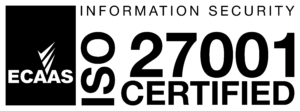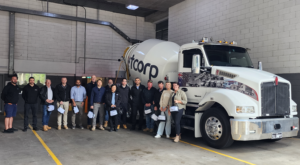NHVR Changes To The Chain Of Responsibility & What It Means For Your Business
NHVR Changes to the Chain of Responsibility (CoR) are now in play and the National Heavy Vehicle Regulator (NHVR) has put forward a new regime.
Under the new CoR regime, which came into effect on 1 October 2018, there will be significant changes to the way responsibility is allocated for the safe operation of heavy vehicles.
The NHVR has released a series of fact sheets and resources to help businesses understand the new rules and their obligations under the CoR. Businesses who fail to comply with their obligations under the CoR can face heavy fines and penalties.
You can find more information on the NHVR website: www.nhvr.gov.au/cor
What Is the Chain of Responsibility?
The Chain of Responsibility is a system that was designed to promote safety in the heavy vehicle industry. Under this system, all parts of the industry are held responsible for safety, rather than just the driver or haulage firm. This helps to prevent accidents and improve health and safety standards.
The NHVR wants to bring the heavy vehicle national law more closely into line with general health and safety regulations, which are already in place for trucking and other industries across Australia.
Reduce Your Risk
The new rules mean that primary producers must take proactive steps to reduce the risks of each and every heavy transport operation. They must also implement a Chain of Responsibility policy.
More than 165,000 companies involved in the heavy transport industry in Australia have now had to look at every aspect of their business. The NHVR has published a series of guidelines for those that contract outside haulage firms and the actual haulers themselves, to add some much-needed clarity to a relatively vague directive.
Recommendations for Primary Producers that Contract Outside Hauliers:
- Only use operators that provide compliant and safe transport.
- Make sure the company mitigates all risks and is fully versed in the latest health & safety regulations.
- Avoid issuing requests that could influence a driver to break reasonable speed limits or skip proper breaks, verbally or in writing.
- Ensure that the load is ready on time so the driver is not delayed and forced to make up the time by driving too fast or driving while fatigued.
- Make sure that the haulier has safe access to your property, as well as proper assistance and equipment to load up.
- Make sure that everybody in the supply chain is fully-informed and agrees to the timeframes for pick-up and delivery.
By taking these precautions, you can be sure that your products will arrive safely at their destination.
Recommendations for Primary Producers with In-house Haulage Operations:
- Ensure your vehicle is fit for purpose, compliant, mechanically sound and legal.
- Load the vehicle correctly each and every time, paying particular attention to weight distribution and securing the load.
- Ensure that the driver is not tired, is fit to work and does not drive longer than the law allows.
- Account for the safety risks that your trucks pose to the individuals involved and the wider world.
- Incorporate health and safety procedures at every stage, from loading the truck, scheduling pick-ups and delivery and allowing for delays.
- It’s no longer enough to follow the letter of the law. If you’re a part of the Chain of Responsibility then you’re responsible for making sure every transport operation is as smooth and safe as possible.
Contact us for more information today!






